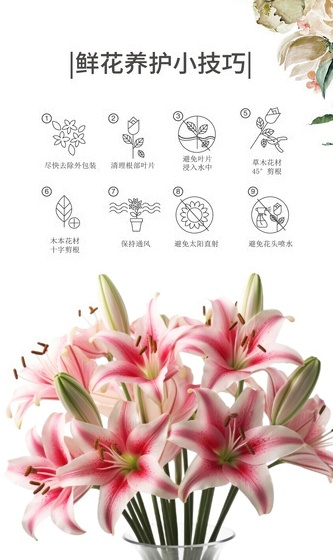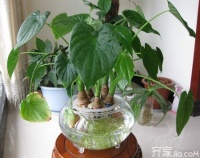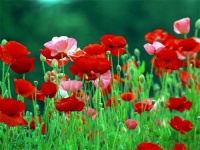油菜花农业生态系统中调节生态系统服务的量化和绘图(案例研究:伊朗戈尔甘
油菜花农业生态系统中调节生态系统服务的量化和绘图(案例研究:伊朗戈尔甘县)。
Raziyeh Shahimoridi, Hossein Kazemi, Behnam Kamkar, Ahmad Nadimi, Mohsen Hosseinalizadeh, Hassan Yeganeh, Mehmet Uğur Yildirim
摘要
调节服务是人类从调节生态系统过程中获得的好处。这些服务包括但不限于授粉、气候调节、水净化、碳固存和侵蚀控制。对农业生态系统中的生态系统服务进行量化和绘图,是提高对这些服务的关注度并采取适当方法实现可持续发展的主要有效行动之一。本研究的目的是对伊朗北部戈尔甘县油菜花农业生态系统中的调节性生态系统服务进行量化和绘图。为此,根据生态系统服务国际通用分类框架,对碳封存、气候调节、土壤微生物呼吸、土壤团聚稳定性和昆虫授粉等一些调节服务进行了评估。每项服务所需的信息和数据都是通过实地测量、实验室实验和实地调查收集的。经过量化后,调查得出的油菜花农业生态系统服务在 ArcGIS 软件 10.3 版生成的地理空间地图上进行了展示。结果显示,研究区域西部和北部的农业生态系统提供了更多的调节服务。此外,授粉结果显示,授粉昆虫隶属于 4 目 13 科。授粉昆虫以膜翅目(44.74%)为主,尤其是蜜蜂(Apis mellifera L.)、双翅目(5.26%)、蝶类(鳞翅目;25%)和甲虫类(鞘翅目;25%)。一般来说,靠近河流和自然生态系统的油菜花农业生态系统比其他地区提供了更多的服务。
本文章由计算机程序翻译,如有差异,请以英文原文为准。
Quantification and mapping of regulating ecosystem services in canola agroecosystems (case study: Gorgan County, Iran)
Regulating services are the advantages that humans receive from regulating ecosystem processes. These services include, but are not limited to pollination, climate regulation, water purification, carbon sequestration, and erosion control. Quantifying and mapping ecosystem services in agroecosystems is one of the main effective actions to increase pay attention to these services and adopt suitable approaches to direct sustainability. The purpose of the study was quantification, and mapping of regulating ecosystem services in canola agroecosystems of Gorgan County, north of Iran. For this purpose, some regulating services such as carbon sequestration, climate regulation, soil microbial respiration, soil aggregate stability, and pollination by insects were evaluated based on the Common International Classification of Ecosystem Services framework. The information and data required for each of these services were collected through field measurements, laboratory experiments, and field surveys. After quantifying, the surveyed services in canola agroecosystems were presented on geospatial maps generated by ArcGIS software, version 10.3. Results showed that agroecosystems in the west and north of the studied region provided the more regulating services. Also, the results of the pollination showed that pollinating insects belonged to four orders and 13 families. The majority of the pollinators were Hymenoptera (44.74%), especially honey bees (Apis mellifera L.), Diptera (5.26%), Butterflies (Lepidoptera; 25%), and the beetles (Coleoptera; 25%), and Anthophora sp. and Andrena sp. were the second and the third most abundant pollinating species after honey bees. Generally, the canola agroecosystems close to the rivers and the natural ecosystems provided more services than other regions.
相关文献
二甲双胍通过HDAC6和FoxO3a转录调控肌肉生长抑制素诱导肌肉萎缩
Min Ju Kang, Ji Wook Moon, Jung Ok Lee, Ji Hae Kim, Eun Jeong Jung, Su Jin Kim, Joo Yeon Oh, Sang Woo Wu, Pu Reum Lee, Sun Hwa Park, Hyeon Soo Kim
具有疾病敏感单倍型的非亲属供体脐带血移植后的1型糖尿病
Kensuke Matsumoto, Taisuke Matsuyama, Ritsu Sumiyoshi, Matsuo Takuji, Tadashi Yamamoto, Ryosuke Shirasaki, Haruko Tashiro
相关知识
我国荒漠生态系统服务将进入量化新阶段
Nature综述:农业生态系统中的土壤结构和微生物组功能
农业生态系统的资源输入和效益输出及调控.ppt
害虫生物防治的农业生态系统多样性调节途径—作物间作和野花带布局
植物的生态学研究与应用.pptx
农业生态系统
半干旱区社会mdash;生态系统干旱恢复力的定量化研究.pdf文档全文免费阅读、在线看
第三节 农业生态系统调控
农业生态系统的服务功能与农业环境保护
生态系统服务价值评估在生态修复中的应用
网址: 油菜花农业生态系统中调节生态系统服务的量化和绘图(案例研究:伊朗戈尔甘 https://www.huajiangbk.com/newsview1129135.html
| 上一篇: 这种“花”,开花200天,还特好 |
下一篇: 湖南沅江市琼湖街道供销合作社:小 |
推荐分享

- 1君子兰什么品种最名贵 十大名 4012
- 2世界上最名贵的10种兰花图片 3364
- 3花圈挽联怎么写? 3286
- 4迷信说家里不能放假花 家里摆 1878
- 5香山红叶什么时候红 1493
- 6花的意思,花的解释,花的拼音 1210
- 7教师节送什么花最合适 1167
- 8勿忘我花图片 1103
- 9橄榄枝的象征意义 1093
- 10洛阳的市花 1039










